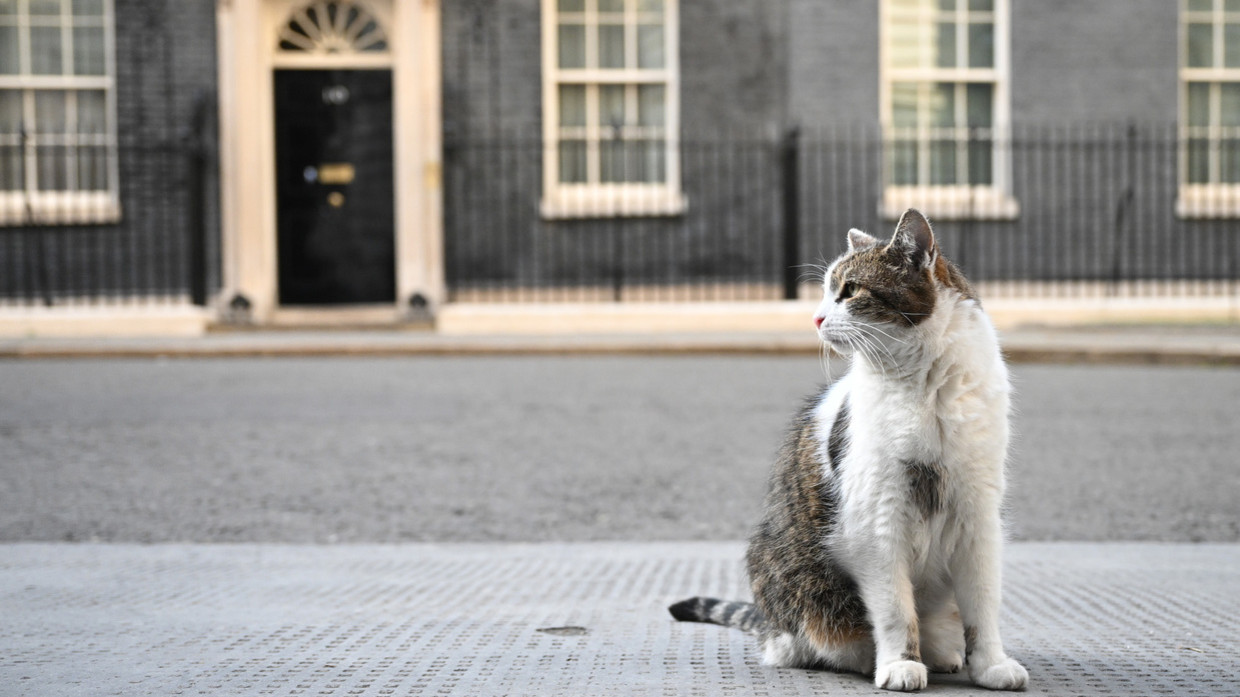UK (Parliament Politic Magazine) – On Tuesday, the lower house of the UK Parliament declined the proposal to deploy a cat for combating a rodent infestation. This decision came about after concerns were raised that the rat traps installed within the premises could pose a threat to the safety of the cats. The plan to introduce a cat to eliminate the rodents was deemed inappropriate due to the utilization of toxic rodent traps, as reported by British media, citing a statement from London’s Battersea Dogs and Cats Home.
Conference on The Welfare of Animals
A conference on the welfare of animals took place by the banks of the Thames River, adjacent to the Palace of Westminster. Notably, the topic of discussion revolved around the prior utilization of “rehomed working cats” to address concerns within British government establishments.
This strategy had demonstrated its efficacy. In a previous instance, a 16-year-old tabby cat named Larry, renowned for having his own presence on X (formerly Twitter), was enlisted to serve in the Prime Minister’s Office at 10 Downing Street. Over a span of twelve years, this feline diligently fulfilled the role of the ‘Chief Mouser’.
Nevertheless, a worry had arisen among legislators that the toxic rat traps could present a notable hazard to felines. Referred to by the moniker Gladstone, a cat had previously inhabited the UK Treasury Office for numerous years. Another cat, named Palmerston and now retired, used to be a frequent presence at the Foreign and Commonwealth Office.
Situated across the Thames River from the Palace of Westminster, the animal welfare organization informed the publication that it had effectively relocated “working cats” to diverse government edifices in the past.
According to the group, a 16-year-old tabby named Larry, possessing his own X (previously Twitter) profile, was previously relocated to the Prime Minister’s Office at 10 Downing Street. Since 2011, he has dutifully held the position of ‘Chief Mouser’.
Rats Transitioned Their Habitat from Subway Stations to the Parliamentary Building
The Commons was inundated with rodents, prompting the urgent requirement for felines to address the situation, as highlighted by Andrea Leadsom, the former leader of the House in the UK, back in May. Describing the severity of the problem, she remarked, “Even a partially consumed bowl of crisps would be devoured by the following morning.”
Rodent infestation at Downing Street was attributed to renovation work carried out in February. This led to a situation where rats migrated from Underground train stations to the parliamentary vicinity. According to estimates from the British Pest Control Association, the rat population in the UK, which is twice the size of the human population, could be around 120 million due to milder winters contributing to their proliferation, while harsher winter conditions naturally reduced their numbers.
In addition to rats, the House of Commons building also encountered issues with infestations of other species like moths and bed bugs. As of 2022, the UK government allocated an approximate sum of £112,000 ($142,000) to address and eliminate these problems. The incident of pests turned out to be unfavorable for anyone involved.
Read More: BVI Delegation Visits UK Parliament To Build Strong Relations
Andrea Leadsom Reveals Something About This Incident
Former House leader Andrea Leadsom revealed to the Sunday Times in May that the House of Commons was inundated with rodents, going so far as to say that if even a partially consumed bowl of crisps was left out, it would be devoured by the next morning.
The refurbishment work conducted in February has been held responsible for the migration of rats and mice from Underground train stations to the parliamentary premises.
According to estimates from the British Pest Control Association, the United Kingdom might house as many as 120 million rats, a number almost twice the count of the human population. This surge is attributed to unusually warm winters that have facilitated the thriving rat population, in contrast to previous harsh winters that had acted as a natural control on the rodent numbers.
The pest predicament of the UK government extends beyond rodents to encompass moths and bed bugs. The Sunday edition of the Daily Express reported that in 2022 alone, the House of Commons spent a minimum of £112,000 ($142,000) in endeavors to eliminate these issues.


